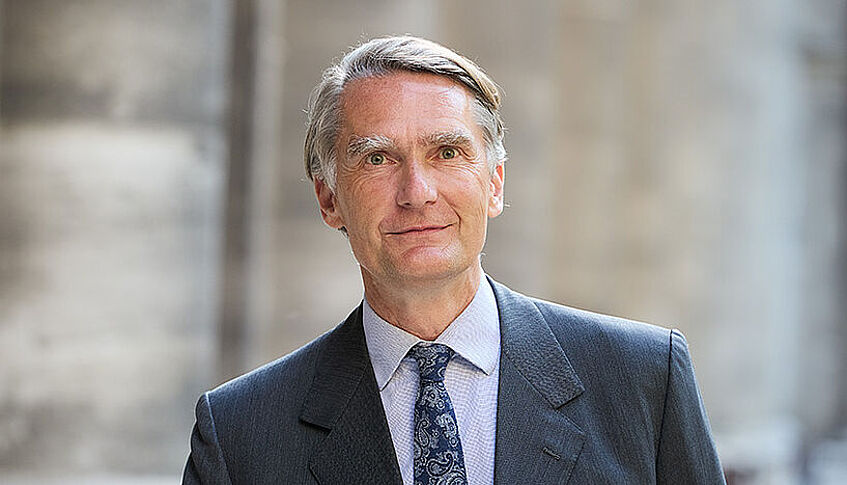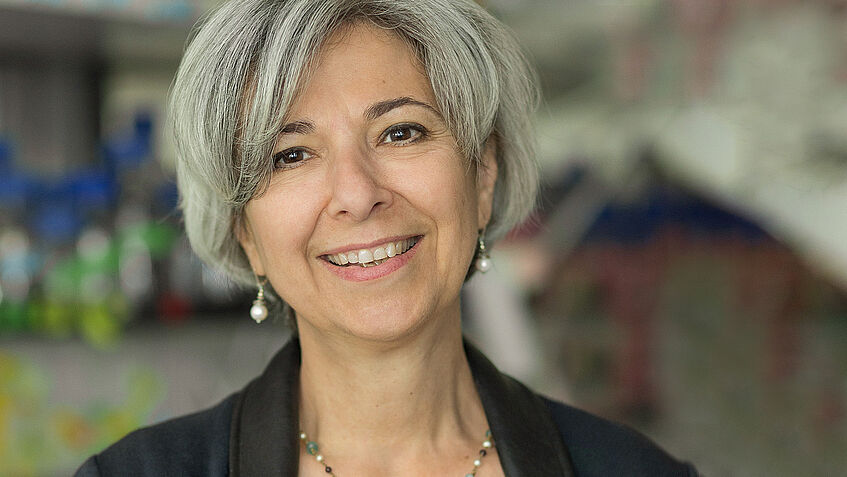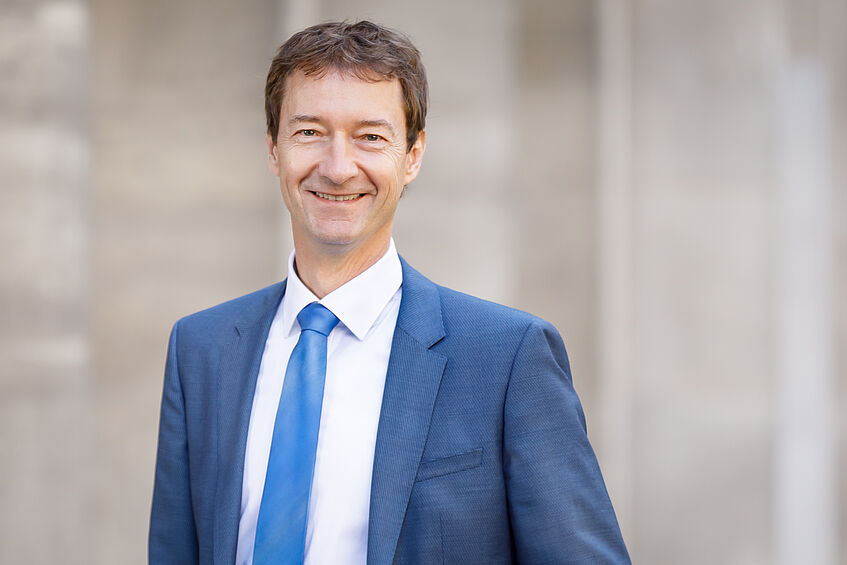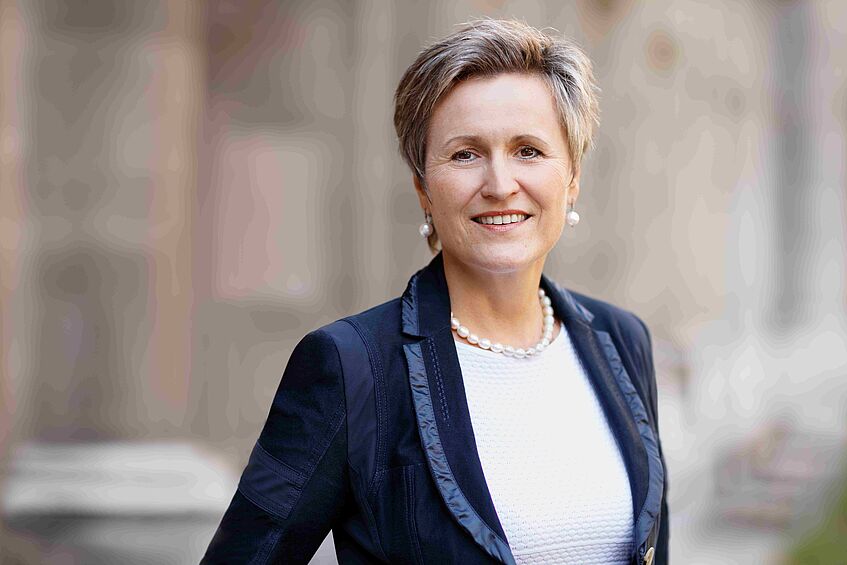The new Rectorate team as of 1 October 2022
The University Board of the University of Vienna has elected Sebastian Schütze as new Rector of the University of Vienna in its meeting on 30 April 2022. Sebastian Schütze could impress with his personality and competence and was unanimously elected by secret ballot.
Upon proposal of the designated Rector Sebastian Schütze and after approval of the Senate, the University Board has unanimously elected the following persons as vice-rectors for the term of office from 1 October 2022 to 30 September 2026 in their meeting on 1 July 2022:
- Manuela Baccarini as Vice-Rector for Research and International Affairs
- Christa Schnabl as Vice-Rector for Educational Affairs as well as
- Ronald Maier as Vice-Rector for Digitalisation and Knowledge Transfer
The Vice-Rector for Infrastructure will be appointed in a second step.
Sebastian Schütze, Rector
Following important academic positions at the Freie Universität Berlin, the Bibliotheca Hertziana (Max Planck Institute for Art History) in Rome and the Queen’s University in Kingston/Canada, Sebastian Schütze has been Professor of Modern Art History at the University of Vienna since 2009, as well as Dean of the Faculty of Historical and Culture Studies since 2018. He is a full member of the Austrian Academy of Sciences. His research focusses on Italy’s art history and cultural history, the history of collections in Vienna and Central Europe as well as the productive interactions between literature and visual arts. A matter of particular concern is making his research findings accessible for a larger audience, also in international exhibitions.

Statement by Sebastian Schütze following his election
The University of Vienna is the oldest University in the German-speaking area and is one of the leading research universities in Europe. As new Rector, I would like to continue this tradition and the successful course of excellence and internationalisation, and position the University in the areas of teaching and research on a national and international level strategically for the future. Especially important here is basic research, the role of the University as Austria’s most important academic educational institution and its social contribution to grand topics of the future, ranging from digital transformation, health, climate and environment to migration, mobility, understanding democracy and political education.
Manuela Baccarini, Vice-Rector for Research and International Affairs

Manuela Baccarini, Vice-Rector for Research and International Affairs
Manuela Baccarini, Professor of Cell Signalling at the Max Perutz Labs of the University of Vienna and the Medical University of Vienna, will serve as Vice-Rector for Research and International Affairs from 1 October 2022 onwards. Manuela Baccarini was born in Italy and completed her doctoral studies at the Sapienza University of Rome. Following positions at the Max Planck Institute of Immunobiology and Epigenetics in Freiburg, at the Fraunhofer Institute for Toxicology and Experimental Medicine in Hanover, and at the Albert Einstein College of the Yeshiva University in New York, Baccarini joined the Department of Microbiology, Immunobiology and Genetics at the Centre for Molecular Biology of the University of Vienna. Baccarini is director of the Vienna BioCenter PhD Program of the University of Vienna and the Medical University of Vienna, and is director of doctoral studies in Molecular Biology (University of Vienna) and in Molecular Biosciences (joint PhD programme offered by the University of Vienna and the Medical University of Vienna). Furthermore, Manuela Baccarini is a member of EMBO (European Molecular Biology Organization) and corresponding member of the Austrian Academy of Sciences.
Ronald Maier, Vice-Rector for Digitalisation and Knowledge Transfer

Ronald Maier, Vice-Rector for Digitalisation and Knowledge Transfer
Ronald Maier has been Vice-Rector for Digitalisation and Knowledge Transfer at the University of Vienna since 1 October 2019. He was Professor of Information Systems and, since 2008, head of the Department of Information Systems, Production and Logistics Management at the University of Innsbruck. Maier studied Business Informatics at the Johannes Kepler University Linz and obtained his doctorate from the Otto Beisheim School of Management in Koblenz (WHU), Germany. Following a visiting professorship at the Terry College of Business, University of Georgia in Athens (US), he received his habilitation degree from the University of Regensburg in 2001. From 2002 until 2007, Maier held a chair in Management Information Systems at the Martin-Luther-Universität Halle-Wittenberg, Germany.
Christa Schnabl, Vice-Rector for Educational Affairs

Christa Schnabl, Vice-Rector for Educational Affairs
Christa Schnabl was Vice-Rector for Student Affairs and Continuing Education at the University of Vienna from 2007 to 2011 and has been Vice-Rector for Educational Affairs since 2011. She studied catholic theology at the University of Vienna. Following professional activities in the field of theological adult education and a study and research stay in Münster, Germany, Schnabl obtained her doctoral degree from the University of Vienna in 1998 on the topic of Hanna Arendt’s relevance for theological ethics. Schnabl received her habilitation degree in the field of social ethics in 2004 and was visiting professor in Frankfurt am Main and Fribourg. She was professor at the former Department of Social Ethics of the Faculty of Catholic Theology at the University of Vienna, as well as Vice-Dean of the Faculty until 2007.
